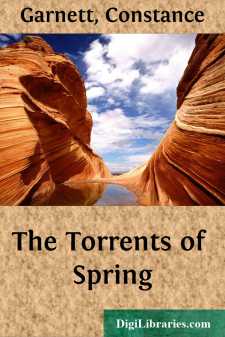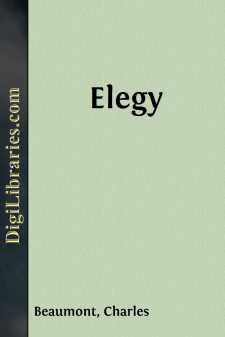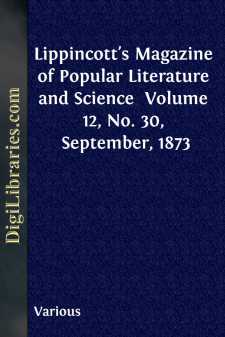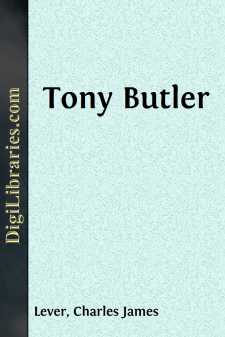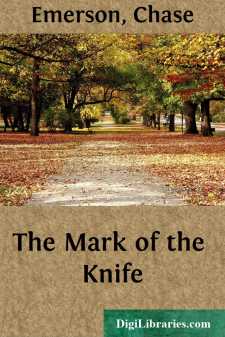Fiction
- Action & Adventure 180
- Biographical 15
- Christian 59
- Classics
- Coming of Age 5
- Contemporary Women 3
- Erotica 8
- Espionage/Intrigue 12
- Fairy Tales, Folklore & Mythology 236
- Family Life 169
- Fantasy 117
- Gay 1
- General 596
- Ghost 32
- Historical 808
- Horror 43
- Humorous 160
- Jewish 25
- Legal 4
- Medical 22
- Mystery & Detective 315
- Political 49
- Psychological 41
- Religious 64
- Romance 159
- Sagas 11
- Science Fiction 730
- Sea Stories 113
- Short Stories (single author) 537
- Sports 10
- Suspense 1
- Technological 8
- Thrillers 2
- Urban Life 31
- Visionary & Metaphysical 1
- War & Military 173
- Westerns 199
Classics Books
Sort by:
I. THE LITTLE PILGRIM IN THE SEEN AND UNSEEN. The little Pilgrim, whose story has been told in another place, and who had arrived but lately on the other side, among those who know trouble and sorrow no more, was one whose heart was always full of pity for the suffering. And after the first rapture of her arrival, and of the blessed work which had been given to her to do, and all the wonderful things...
more...
THE TORRENTS OF SPRING 'Years of gladness, Days of joy, Like the torrents of spring They hurried away.' —From an Old Ballad. … At two o'clock in the night he had gone back to his study. He had dismissed the servant after the candles were lighted, and throwing himself into a low chair by the hearth, he hid his face in both hands. Never had he felt such weariness...
more...
CHAPTER I A SPIRIT CAGED The room was strange as the man, himself, who dwelt there. It seemed, in a way, the outward expression of his inner personality. He had ordered it built from his own plans, to please a whim of his restless mind, on top of the gigantic skyscraper that formed part of his properties. Windows boldly fronted all four cardinal compass-points—huge, plate-glass windows that gave a...
more...
by:
Charles Beaumont
"Would you mind repeating that?" "I said, sir, that Mr. Friden said, sir, that he sees a city." "A city?" "Yes sir." Captain Webber rubbed the back of his hand along his cheek. "You realize, of course, that that is impossible?" "Yes sir." "Send Mr. Friden in to see me, at once." The young man saluted and rushed out of the room. He returned with a...
more...
by:
Various
III.—THE FEAST OF SAINT ATHANASIUS. THE PAULISTS.As I parted from my stout old friend Joliet, I saw him turn to empty the last half of our bottle into the glasses of a couple of tired soldiers who were sucking their pipes on a bench. And again the old proverb of Aretino came into my head: "Truly all courtesy and good manners come from taverns." I grasped my botany-box and pursued my promenade...
more...
CHAPTER I. THE COTTAGE BESIDE "THE CAUSEWAY" In a little cleft, not deep enough to be a gorge, between two grassy hills, traversed by a clear stream, too small to be called a river, too wide to be a rivulet, stood, and, I believe, still stands, a little cottage, whose one bay-window elevates it above the condition of a laboring-man's, and shows in its spacious large-paned proportions...
more...
by:
Gilbert Parker
SUCH THINGS MAY NOT BE A few hours later Fleda slowly made her way homeward through the woods on the Manitou side of the Sagalac. Leaving Ingolby's house, she had seen men from the ranches and farms and mines beyond Lebanon driving or riding into the town, as though to a fair or fete-day. Word of anticipated troubles had sped through the countryside, and the innate curiosity of a race who greatly...
more...
by:
Chase Emerson
THE NEWCOMER Ridgley School, with its white buildings set comfortably among the maples and the oaks that crown the flat top of the hill a mile to the west of the village of Hamilton, attracts and holds the attention of all eyes that fall upon it. Partly perhaps because the dormitories and the recreation halls fit into the landscape and do not jut boldly and crudely above the trees—as so many...
more...
INTRODUCTORY TO "THE THREE GOLDEN APPLES" The snow-storm lasted another day; but what became of it afterwards, I cannot possibly imagine. At any rate, it entirely cleared away, during the night; and when the sun arose, the next morning, it shone brightly down on as bleak a tract of hill-country, here in Berkshire, as could be seen anywhere in the world. The frost-work had so covered the...
more...
THE BEGINNING Kenneth Gwynne was five years old when his father ran away withRachel Carter, a widow. This was in the spring of 1812, and inthe fall his mother died. His grandparents brought him up to hateRachel Carter, an evil woman. She was his mother's friend and she had slain her with the viper's tooth. From the day that his questioning intelligence seized upon the truth that had been so...
more...



